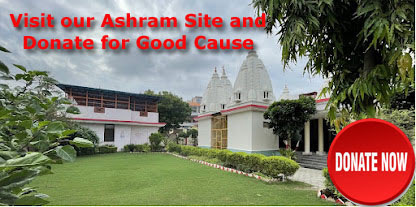i) The above Mantra is highly meritorious and auspicious. It
generates the pleasure of the Gods. It yields both worlds by enjoyment an
salvation, confers cherished desires and brings about the happiness of the
devotees of Shiva
ii) It is conducive to blessedness, fame, longevity to those
who seek heaven. Those who are free from desires derive the benefit of
salvation.
iii) The nature who repeats this mantra-in purity, hears or
narrates this to any person, shall attain all desires.
iv) From the Adhara Sakti to the seat of the sacred love the
devotee shall repeat the mantra. M Shivaya Namah.
v) The japa of six syllables (Om Namah Shivaya) shall be
performed always.
ii) Lord Shiva bad taught this great auspicious Mantra.
Omkara came out of HIS mouth. Originally it indicated him.
iii) Lord Shiva is the indicator and HE is the indicated.
The mantra is identical with HIM. The repetition of this mantra is verify his
repeated remembrance.
iv) By the recitation of this root-mantra, the very
enjoyment as well as salvation is achieved.
v) The Mantra may be recited as directed by the Goddess
(Parvati). This Om Mantra which is identical with Lord Shiva.
vi) Your knowledge shall be stabilized. Permanent fortune
shall stand by you. On the Chaturdasi day (4th Tithi) and on the day with Ardra
Star (Ardra Nakshtra), the recitation of this Mantra will give you ever-lasting
efficacy, name, and fame.
vii) Remember that Lord Shiva creates the universe at the
outset saying “OM”.
viii) The Saint's sages, the scholars, who realize and identify
between the name and the sound know Lord Shiva as the single-syllabled OM.
ix) Let the devotee practitioner, sitting in a retired place
and restraining his senses, utter by inaudible repetition, the long Pranava OM,
to destroy all obstacles.
x) `AUM’ MEANING – The letter “A” expresses Brahma, and the
letter “U” Vishnu, the letter “Ma” expresses Shiva.
[The above observations are based on Shiva Purana and as
stated by Lord Karttikeya son of Lord
Shiva.]
3. Repetition of Mantra (Japa) - i) It is said that a Japa
without the behest of the preceptor, holy rites, faith, and the prescribed fees
is fruitless though the behest might have been secured.
ii) If a Mantra is well practiced with the acquisition of
behest, attended with holy rites, equipped with faith in Lord Shiva, and
accompanied by fee it is greatly efficacious, beneficial, and fruitful.
iii) Dedicating yourself along with your possessions to the
Lord and after uneventfully worshipping HIM to your capacity. You shall learn
the Mantra and derive knowledge in due course of time.
iv) Lord Shiva recounts the procedure for acquiring the
mantra. Without it the Mantra is futile and with it, it is efficacious. The
futile ones are the following:
a) Mantra acquired without permission.
b) Devoid of holy rites.
c) Devoid of faith.
d) Devoid of full attention.
e) That which has been prohibited.
f) Permitted but devoid of gifts.
v) The following Mantras are fruitful:
a) Achieved with permission.
b) Attended with rituals.
c) Fully equipped with faith.
d) Where the mind fully dwells.
e) And attended with gifts (to the preceptor).
vi) The muttering of the Mantra with high, low or middle
accentuation is called the verbal japa.
vii) The mumbling japa is the one where the tongue throbs
and there is a sight utterance. It may not be heard by others or may be slightly
heard.
viii) The mental japa is that where the series of letters
are thought well and the words, their meaning are pondered over.
ix) The mumbling japa is a hundred more times affections than
verbal and the mental is a thousand times more effective than mumbling.
x) The japa shall be performed using the thumb in
contact with other fingers (i.e. counting the japas on the rosary). If japa is
performed without the thumb it is futile.
xi) All these are inimical to japa viz. anger, arrogance,
inebriation and thirst, lethargy, spitting, yawning, and seeing a dog or a base
man.
xii) The native can perform japa while conversing with
others.
xiii) Rosary for Mantras – If there are hundred and
eight beads (of Rudraksa) that rosary is the most excellent (for japa).]
xiv) The benefit is infinite if the calculation (of Shiva’s
japa) is by knots of the Kusa grass or Rudraksa beads.
xv) Mantra Yoga – The practice and repetition of the japa
along with meditation is Mantra-yoga.
xvi) If japa is performed in the house, it is ordinarily
efficacious. In a holy forest or park, it is thousand times more. On the banks
of a river, it is hundred times more.
xvii) The japa performed on the seashore in a divine pond,
on a mountain, in a temple and in a sacred hermitage has a crore times the
benefit. If it is in presence of Shiva (Linga) it is endless.
xviii) The japa with Rudra as the presiding deity is the
most excellent, that with Vishnu as the presiding deity is the middling and
that with Brahma as the presiding deity is of the lowest quality.
xix) One shall never perform Japa wearing a turban and a
coat. If one is naked or one has loosened the knots of hair, or is dirty or is
impure or has impure hands, he shall not perform Japa.
Dr. A. Shanker,
www.ShankerStudy.com
www.ShankerAdawal.com
www.ShankerAdawal.com
















































